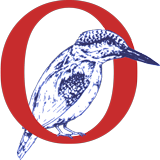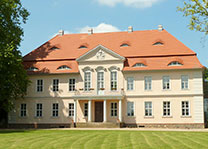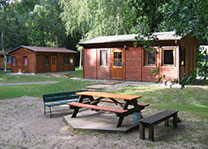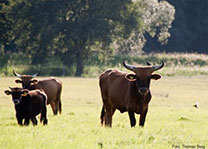“Platzeck should keep promises”
Federal Environment Minister Trittin is right, the “Lower Odertal” water strip program must finally be implemented by the state of Brandenburg, the Brandenburg state government still has a lot of homework to do.
Federal Environment Minister Jürgen Trittin rightly urges the Brandenburg state government to finally comply with the commitments made by the state of Brandenburg as part of the “Unteres Odertal” waterfront project after a lead time of 13 years and to implement the promised conditions. Indeed, little has happened here. The ministers responsible in the past have criminally neglected the state’s national park project and confined themselves to holding the association responsible for the state government’s previously failed national park policy. The dialogue, which is offered and encouraged by the friends’ association, has been regularly rejected since 1999. Such a policy of refusal to talk leads to a dead end and an inability to act. Our offer to talk is still available.
Nevertheless, the demands of Federal Environment Minister Trittin in Potsdam should be taken seriously. The homework still to be done by no means only consists of the water study that has been outstanding for years, but rather the fulfillment of a whole series of promises that the State of Brandenburg made to the Federal Republic of Germany in 1992 with the signature of the then Green Environment Minister Platzeck. The most important of these are listed again below:
The quotes all come from the 1992 grant notice from the Brandenburg Ministry.
1. “The state government undertakes to designate half of the areas of the national park as protection zone I in the core area by December 31, 2010.” So far, however, not 50%, but only 15% of the national park area has been designated as a total reserve. The designation of further areas is blocked in particular by the Swedish member of the state parliament, Bischoff (SPD).
2. “Hunting and fishing are to be stopped.” So far there is still a lack of a fishing concept that would stop fishing on at least 50% of the area, at least after a transition period.
3. “In the core area, fishing is to be excluded in future.” So far there is still no concept for anglers that excludes the use of angling on at least 50% of the area and limits the time and space in the rest of the national park. A concept for fishing and angling was developed by the national park administration and repeatedly watered down in the search for compromises, but it is blocked by Bischoff in particular.
4. “The state has committed itself to” largely reducing the maintenance of the water bodies in the national park and adapting them to nature conservation goals. ” So far, however, water management in the national park has been continued as ever.
5. In addition, the state has undertaken to designate the entire core area as nature conservation areas and to convert the arable land into grassland in the course of the project funding. The entire south of the area has not yet been designated as a national park or a nature reserve. The arable land there has not yet been converted into grassland, nor is it at least temporarily managed organically, as promised
Further examples could be given. The Brandenburg state government still has a lot to do to meet the commitments made to the federal government at the time. Contract loyalty is part of the reliability and predictability of responsible state politics.








